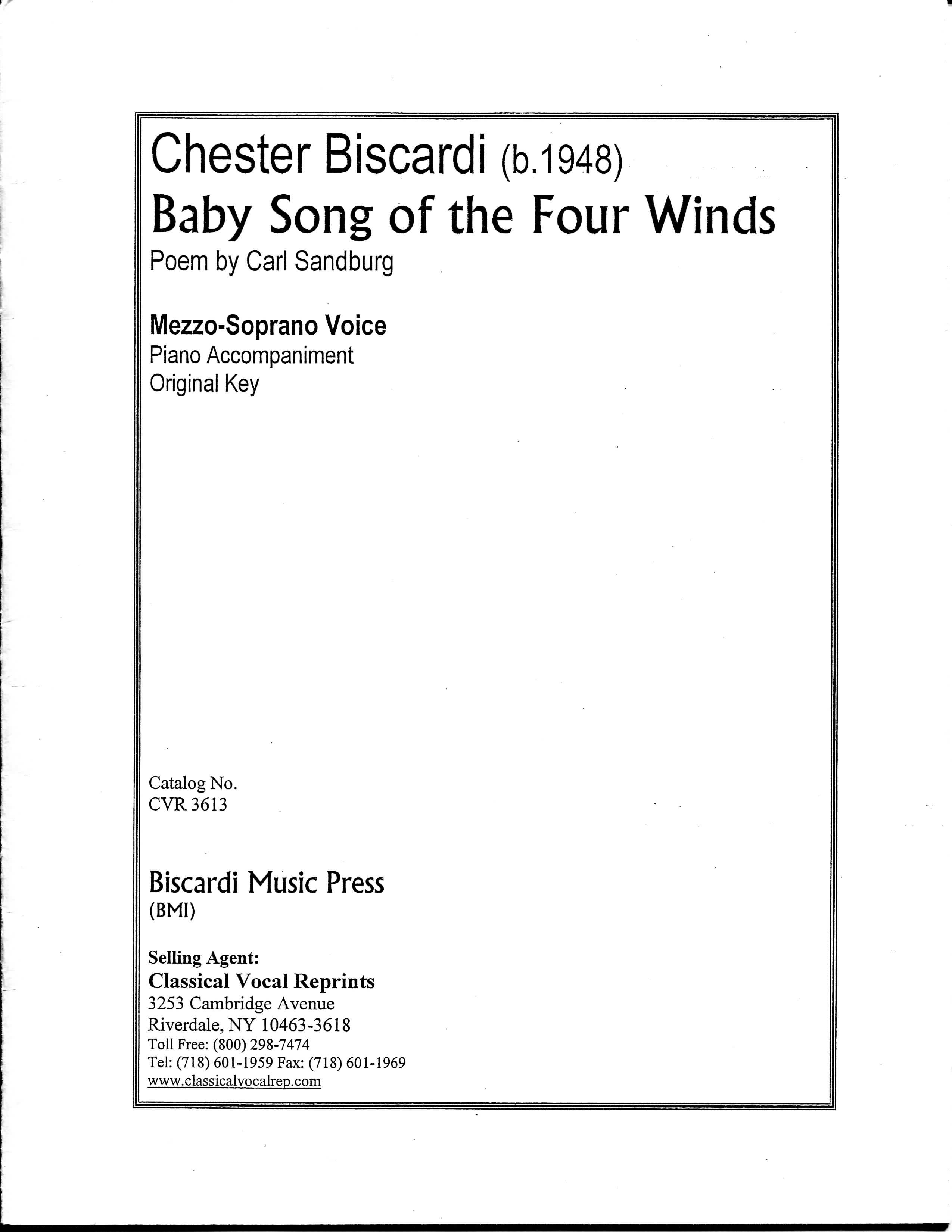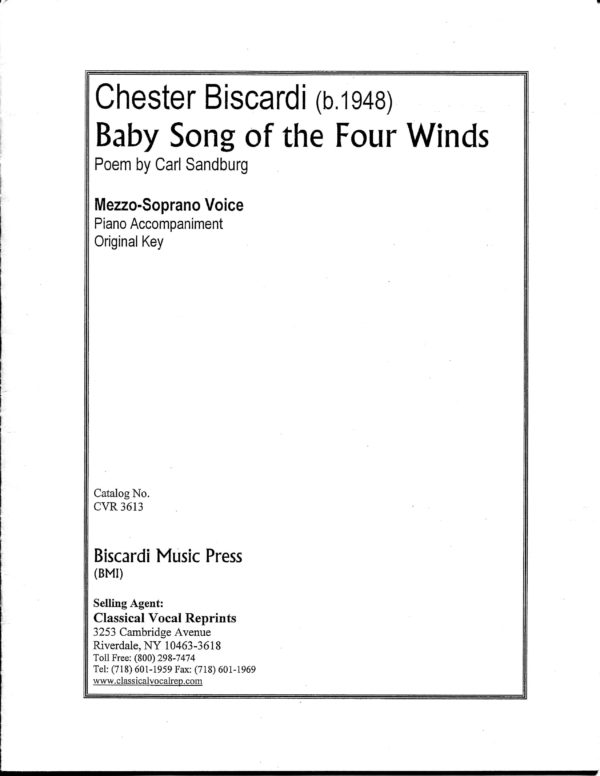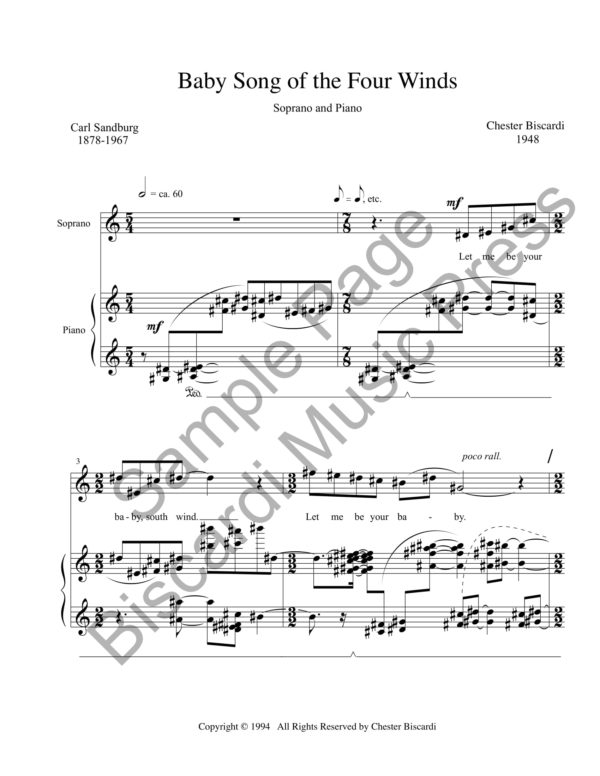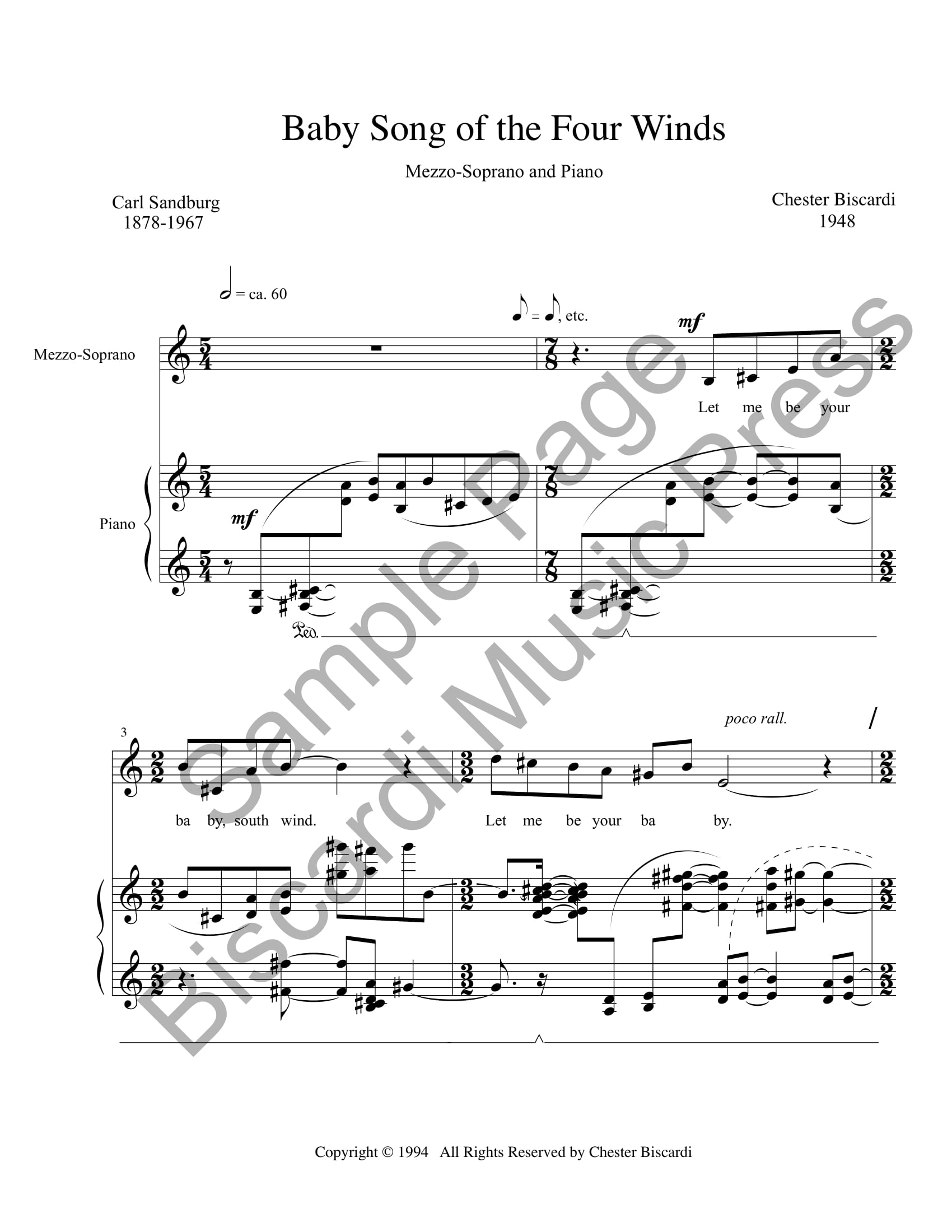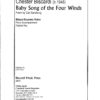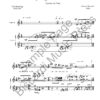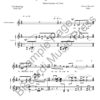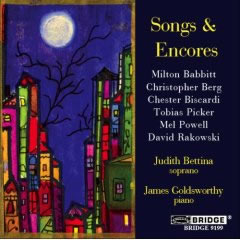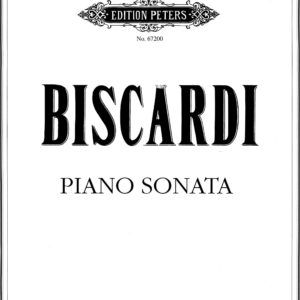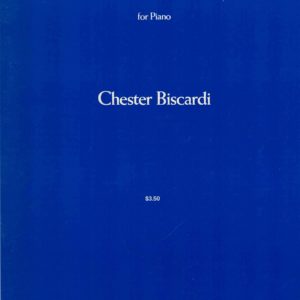Description
Audio
Judith Bettina, soprano
James Goldsworthy, piano
This recording appears on Songs & Encores, Bridge Records Bridge 9199 (New Rochelle, New York, 2006) with songs by Milton Babbitt, Christopher Berg, Chester Biscardi [Baby Song of the Four Winds and Guru] Tobias Picker, Mel Powell, and David Rakowski, featuring Tom Kolor, vibraphone, and Curtis Macomber, violin. Liner notes by Hayes Biggs.
Used by permission of Bridge Records, Inc., www.bridgerecords.com, from the CD Songs & Encores, Bridge 9199.
Premiere
5 April 1995
Marylin Smart, soprano / Gary Smart, piano
Fine Arts Concert Hall, University of Wyoming at Laramie
Laramie, WY
Text
Carl Sandburg (from Good Morning, America, 1928)
Vocal Range
mezzo-soprano: G#3 – F5
soprano: C4 – A5
Dedication
Written for Carole Everett. The work celebrates the birth of Colin Graham Everett, son of Carole and C. J. Everett.
Publisher
Biscardi Music Press mezzo-soprano (original) version: No. B48-94-1a; soprano version: No. B48-94-1b
Classical Vocal Reprints
Mezzo-soprano No. CVR3613: Print / Digital
Soprano No. CVR3614: Print / Digital
Theodore Front Musical Literature, Inc.
Mezzo-soprano: Print | Digital
Soprano
Program Notes
This lullaby is from the point of view of the baby, who invites the four winds to be his companions. The gentle south and west winds play with him. Unpredictable, the north wind wakes him up to life. The tranquil east wind brings comfort to this cycle of wakefulness and sleep. It was written for mezzo-soprano Carole Everett to celebrate the birth of Carole and C.J. Everett’s son, Colin Graham Everett.
BABY SONG OF THE FOUR WINDS
Let me be your baby, south wind.
Rock me, let me rock, rock me now.
Rock me low, rock me warm.
Let me be your baby.
Comb my hair, west wind.
Comb me with a cowlick.
Or let me go with a pompadour.
Come on, west wind, make me your baby.
North wind, shake me where I’m foolish.
Shake me loose and change my ways.
Cool my ears with a blue sea wind.
I’m your baby, make me behave.
And you, east wind, what can I ask?
A fog comfort? A fog to tuck me in?
Fix me so and let me sleep.
I’m your baby—and I always was.
Carl Sandburg, from Good Morning, America (1928)
“Baby Song of the Four Winds” from Good Morning, America 1928 and renewed 1956 by Carl Sandburg, performed by permission of Harcourt Brace & Company.
Press
"This absorbing and beautifully-sung conspectus of recent American songs, largely composed in the past 20 years, covers a wide range of idioms. . . . The songs of Chester Biscardi and David Rakowski show that lyricism is alive and well in the hands of a younger generation. Five stars."
— Calum Macdonald, BBC Music Magazine (2007)
"Although two of Chester Biscardi's contributions were composed for special occasions, they were well worth recording here. Biscardi's fondness for chromaticism is illustrated by the second half of his version of Carl Sandburg's Baby Song of the Four Winds. Dreamy and moving, Recovering discreetly refers to a Bach chorale. The brief soundscape of Guru (inspired by Allen Ginsberg) completes the group."
— Peter Palmer, Tempo (2007)
Baby Song of the Four Winds was composed in 1994 in celebration of the birth of Graham Everett, son of Biscardi's friends Carole and C. J. Everett. Carl Sandburg's poem calls forth in this setting music of effortless grace and myriad subtleties. This lullaby is written, somewhat unusually, from the perspective of the baby, who addresses the four winds, inviting them to be his companions. The gentleness of the winds of the South and West is supported by a gentle oscillation between two pitches, D and E, in the piano part, which serves to underline the phrase, "rock me." The most striking departure in the poem, "North wind, shake me where I'm foolish./Shake me loose and change my ways," is mirrored by an abrupt shift to music of a much more chromatic and skittish character. At the end, in the composer's words, "the East wind brings comfort to this cycle of wakefulness and sleep."
— Hayes Biggs, Songs & Encores (2006)

